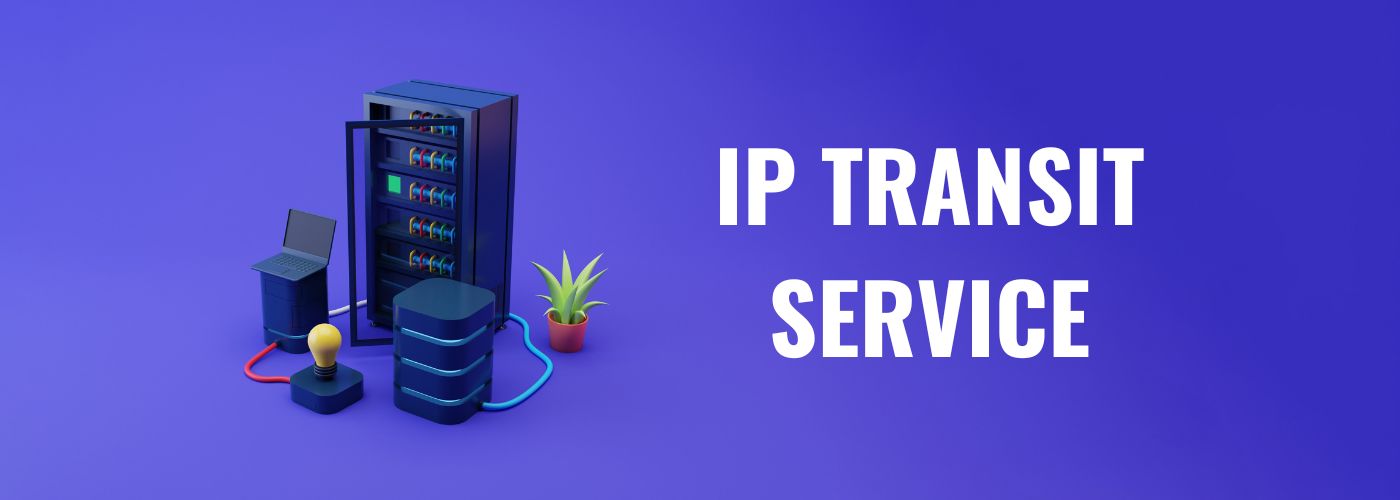In a world where the internet is increasingly becoming a staple, the importance of IP transit services cannot be understated. For both homes and businesses, IP transit provides a reliable and affordable way to get online. In this blog, we’ll be discussing in detail the importance of IP transit service.
What Is IP Transit Service
In short, IP transit is a type of data transport service that allows Internet Service Providers (ISPs) to exchange Internet traffic. Without IP transit, ISPs would have a hard time exchanging traffic with one another, which would make it difficult for people to access the internet.
An IP transit service provider is a company that owns and operates a network of routers and switches that act as gateways between different ISPs. In order for an ISP to connect to another ISP, it must purchase IP transit from the provider.
IP transit providers offer their services on a per-megabit basis, meaning that ISPs pay for the amount of traffic they exchange with other providers. The price of IP transit varies depending on the provider.
What Is An IP Address
An IP address is a unique numerical label assigned to each device connected to a computer network that uses the Internet for communication. The IP address serves two main functions: host or network interface identification and location addressing.
In the digital age, our IP addresses are like our fingerprints. They can be used to track our online activity, identify our location, and even reveal our personal information. That’s why it’s important to hide your IP address when you’re online.
There are a number of ways to hide your IP address, including using a VPN, proxy server, DDoS protection, or TOR network. Each has its own advantages and disadvantages, but all will help to keep your identity and activities safe from prying eyes.
Hiding your IP address is especially important if you frequently use public Wi-Fi networks or engage in activities that could be considered illegal in your country. By taking steps to protect your identity online, you can help keep yourself safe from identity theft, cybercrime, and other threats.
Types of IP Transit Service Providers
There are many types of IP transit service providers, each with its own unique set of offerings. We’ll be breaking down what are Tier-1, Tier-2, Tier-3 ISP?:
Tier-1 IP Transit Service Providers: These providers offer the highest quality IP transit services with the best performance and reliability. They typically have a large network of peering partners and offer a wide range of features and options.
Tier-2 IP Transit Service Providers: These providers offer lower quality IP transit services than Tier 1 providers but may be a good option for those on a budget. They typically have fewer peering partners and may not offer as many features or options.
Tier-3 Local IP Transit Service Providers: These providers offer IP transit services to specific geographic regions. They typically have smaller networks than the other types of service providers but can offer more personalized service.
What’s The Difference Between IP Transit vs. Internet Access
In the world of internet providers, there are a lot of options out there. Two common terms you may hear are IP transit and internet access. They both provide connectivity to the internet, but they do so in different ways. Here’s a look at the key differences between these two types of service.
IP transit is a service where an ISP provides connectivity to the internet backbone. This type of service is typically used by larger companies that need a lot of bandwidth and have their own network infrastructure or use a colocation center.
Internet access, on the other hand, is a service where an ISP provides connectivity to the Internet for individual users or small businesses. This type of service is usually less expensive than IP transit and doesn’t require as much infrastructure on the user’s end.






More to Read
Understanding Edge Computing
In the ever-evolving landscape of technology, one term that has been gaining significant attention is
Mar
HostingAdvice.com About Sharktech
Check what one of the leading hosting news portals says about Sharktech.
Feb
Content Delivery Network Basics
In the ever-evolving landscape of web technologies, Content Delivery Network (CDN) has become a crucial
Feb
Kubernetes vs Docker Swarm
ntainer orchestration is crucial in handling the intricacies of deploying and scaling containerized applications. Two
Feb
Top 5 Ways To Protect Your Personal Data
In today’s digital age, our personal data is more vulnerable than ever. With the increasing
Jan
Building Your Disaster Recovery Plan
In the ever-evolving digital landscape, preparing for the unexpected is not just a good practice—it’s
Jan